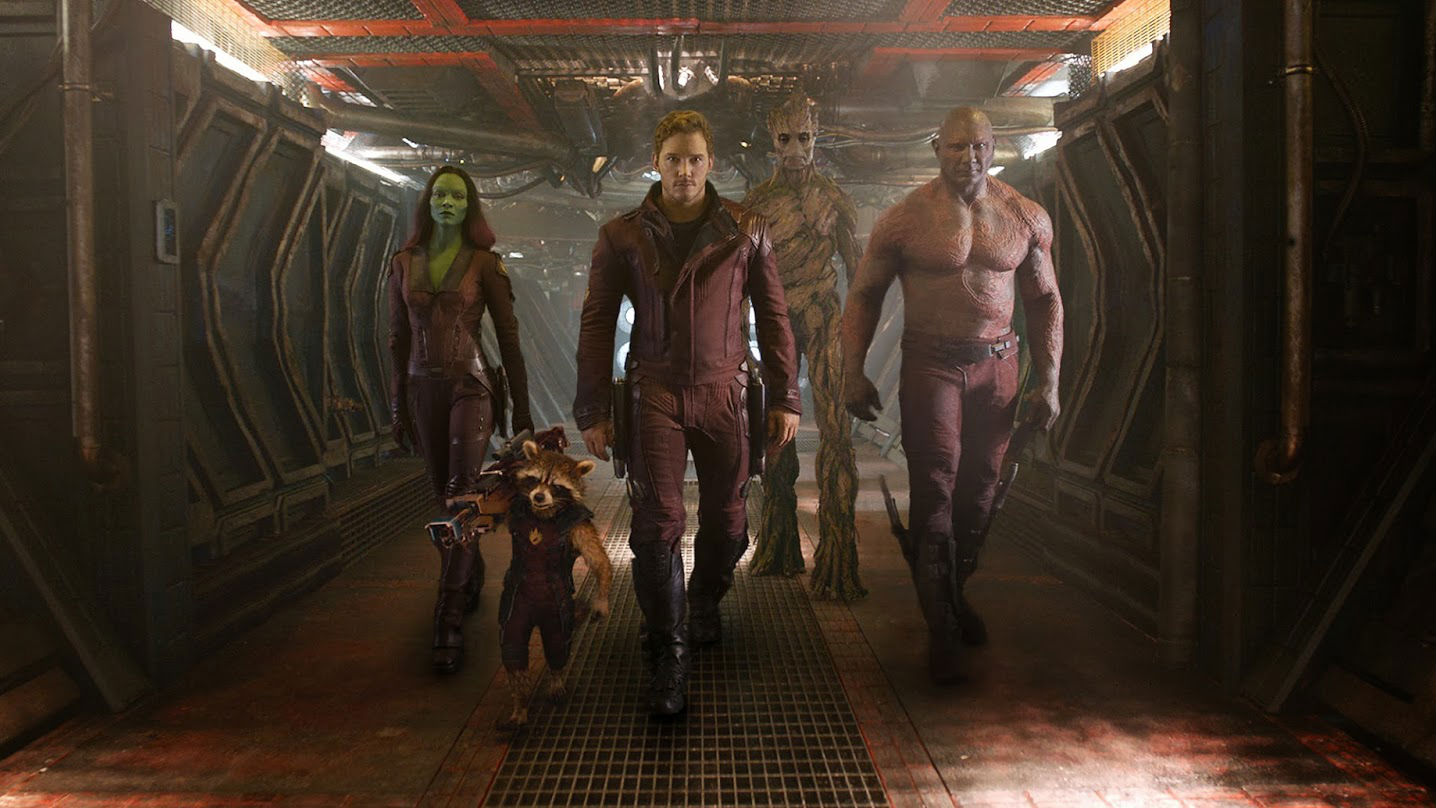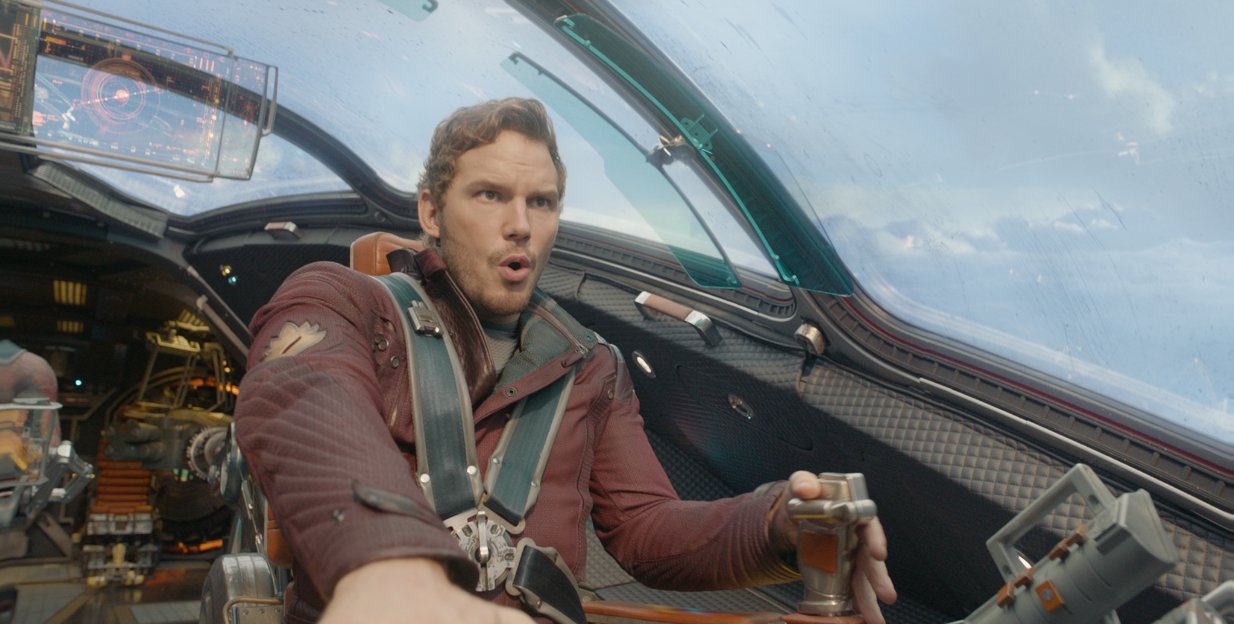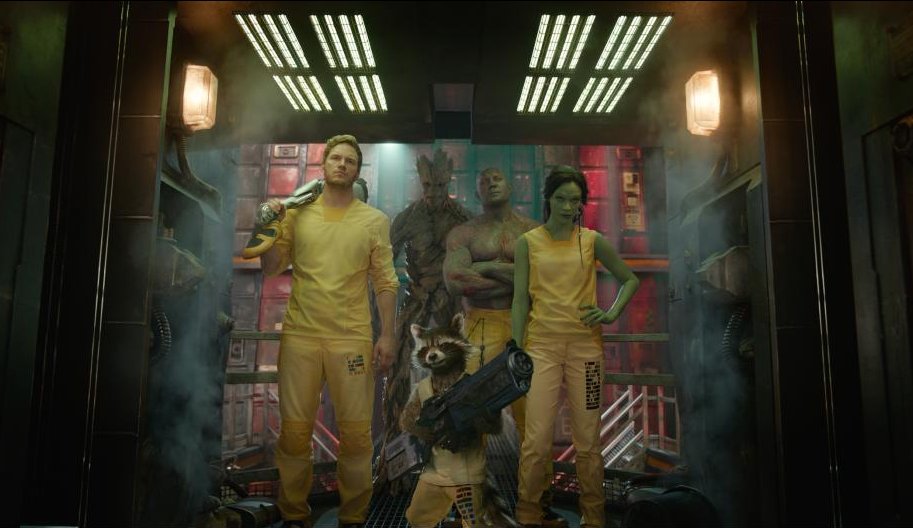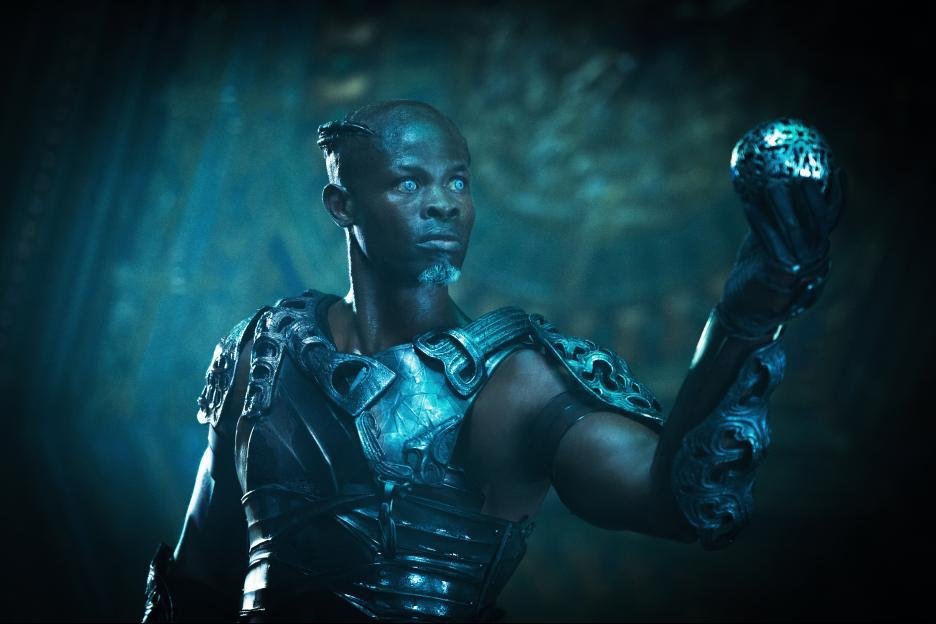Guardians of the Galaxy is without a doubt the weirdest Marvel movie to make it to the screen yet—and it's mostly a good thing. The film centers on a motley band of companions who are (according to director James Gunn) "The Rolling Stones compared to The Avengers' Beatles." The movie takes pride in its irreverent subversion of standard comic-book self-seriousness, even more than the usual light-heartedness that Marvel's got on display. While other Marvel films feel like funny superhero movies, Guardians of the Galaxy is closer to a comedy set in outer space.
 Marvel Studios
Marvel StudiosIn 1983, the Earth-bound Peter Quill (Chris Pratt) is abducted by aliens immediately following the death of his mother. This launches the best running joke of the whole movie, that the film's "pop-culture timeline" ends in '83—thus we see Quill dancing around with a Walkman on a desolate alien planet and decorating his ship with little troll dolls. Fast-forward to 2015 and we meet Quill—or, as he likes to call himself, Star-Lord—who's taken up smuggling black market items.
But the thievery of an object called an Infinity Stone, an old relic of bunches of power, has got the most powerful forces in the Universe looking to kill Peter and the companions he picks up along the way—including the green-skinned Gamora (Zoe Saldana), an explosophillic talking raccoon named Rocket (voiced by Bradley Cooper), a tortured warrior named Drax (Dave Bautista), and a talking (sort of) tree named Groot, whose lone line—"I am Groot"—is inflected to perfection by Vin Diesel.
While I've got some niggling issues with the movie (which I'll get to in a second), I want to make clear how refreshing Guardians of the Galaxy is in a sea of movies like The Amazing Spider-Man 2 or Man of Steel, which feature roughly 1000% more brooding/sulking/angst than any person goes through in a year. Guardians is a fun movie populated by fun characters where fun things happen. The movie is fun is successful insofar as it's character based; Chris Pratt delivers an intensely Chris-Prattian performance, filled to the brim with wit, charm, and a perfect sense of comedic timing. Other actors get in on the fun, too—Bautista, for whom Guardians is his first major role, excels in the role of an over-literal warmonger (sort of a Conanio ad infinitum situation).
And Bradley Cooper is fantastic as the vaguely-Jersey raccoon science project, managing to do what few predominately film-based actors can and disappear totally into his role. Basically, at no point in the movie do you think "Hey, that's Bradley Cooper," except for the first time the character speaks—and even then, it's only to think, "Hey, that sounds almost nothing like Bradley Cooper."
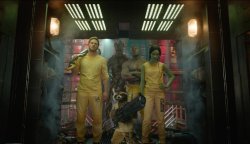 Marvel Studios
Marvel StudiosThe movie is seriously smile-worthy, largely due to the sheer number of jokes throughout. Hardly five minutes go by without something happening on screen that makes you crack a smile. But unlike the gag-heavy offering of something like 22 Jump Street, Guardians keeps its humor mostly character- and quip-based. Humor goes down much easier when it's one character saying a funny thing, rather than a drawn-out series of back-and-forths; as such, Guardians never suffers from the same comedic burn-out as something like 22 Jump.
However, the movie does suffer when it tries to indulge in the same sort of city-ruining present in The Avengers or Man of Steel. The planet whose fate hangs in the balance this time is called Xandar, which never stops sounding stupid; they're presented as unambiguously The Good Guys, with ships shaped like stylized suns and whose official colors are blue and gold. Crusading against The Good Guys is an alien general named Ronan, who seeks to destroy their entire planet for reasons vaguely alluded to; considering that Ronan is The Villain, we're probably better off just trusting that his reasons are dumb.
My point in that excessively capitalized paragraph is that at no point is that central conflict really substantial or meaningful to us, beyond just "I want the good guys to win." The Avengers, Man of Steel, Thor 2, and more all get to cheat a little bit by using the fate of Earth as automatic emotional investment. But when it's a weird distant planet whose name's first letter is an X? It means nothing.
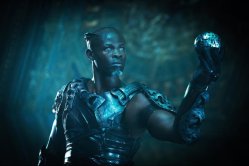 Marvel Studios
Marvel StudiosThis last point only matters insofar as I really don't want to see Marvel's offerings parallel those of, like, Michael Bay or something—arguably also Roland Emmerich and Zach Snyder—that is, movies which revel in their own carnage, without attaching any signification to the big pretty destruction. Sure, at some point, all human beings feel this Magpie-like attraction to movies that show large things exploding; but we're approaching a point of seriously diminishing returns on how many explosions is enough.
So when you get right down to it, Guardians of the Galaxy is absolutely, 100% in line with Marvel's past offerings; in fact, it follows the Marvel Movie Form down to a perfect T, to the extent that Guardians of the Galaxy is basically just Thor: The Dark World with a new coat of paint. The difference here is in the characters. Pratt and co. are just so fantastically entertaining on screen that, in the short term, you can ignore the fact that we're not really getting anything new here. Marvel is quickly proving that, if nothing else, they know (in a technical sense) what works.
Caveat Spectator
Various mild-to-medium profanities get used infrequently, as well as one implied f-word and the usage of the phrase "a-hole" (as pronounced "eh-hole"), which honestly sounds so much worse than if they'd just said the word. The movie is fairly violent, but bloodless; characters shoot one another, threaten to shoot one another, and fail to shoot one another. Star-Lord and Rocket are both relatively anti-social people (though with obligatory Hearts of Gold); Star-Lord's a thief, and Rocket is obsessed with tricking people into loaning him their prostheses because he finds it funny. A handful of characters get drunk at a bar. A bunch of references are made to Star-Lord's sexual exploits, all of them very mild but still noticeable; references are made to black lights and Jackson Pollock paintings.
Jackson Cuidon is a writer in New York City. He tweets semi-annually @jxscott.

